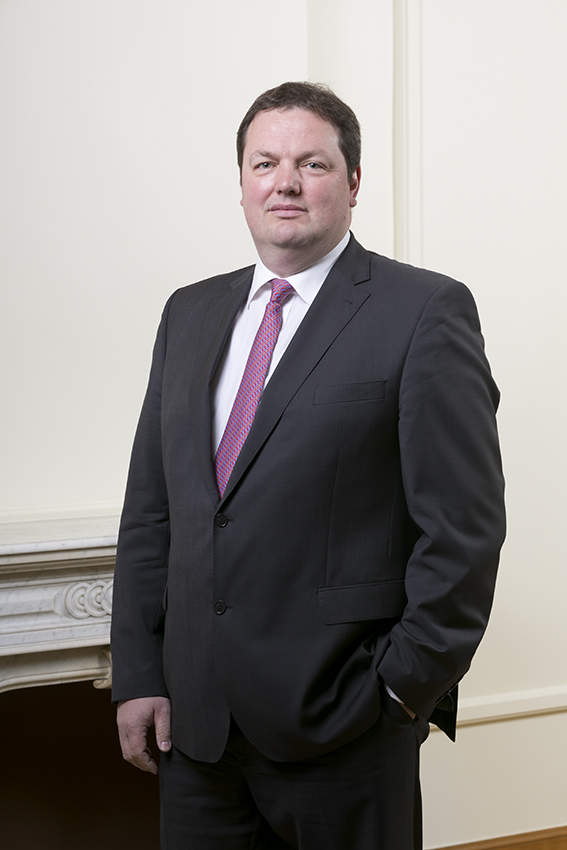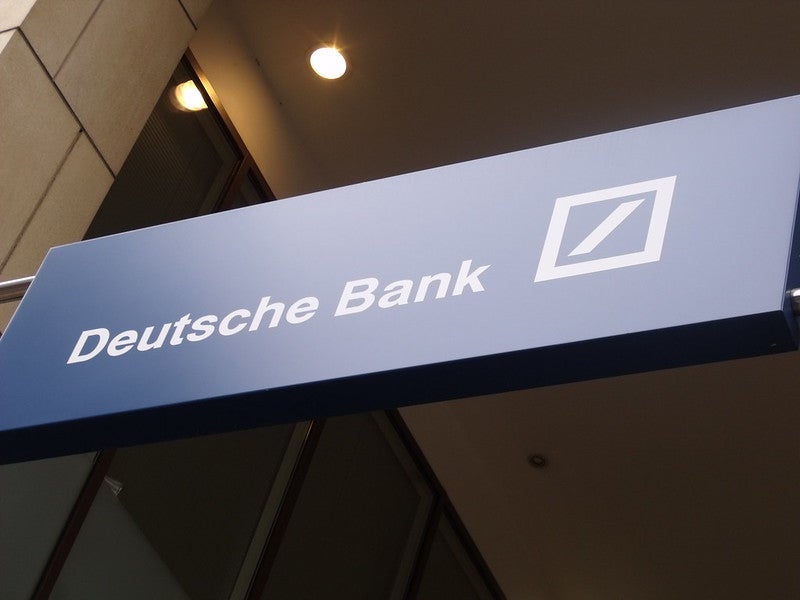Carlo Friob, CEO Luxembourg, KBL European Private Bankers, (KBL epb) tells Saloni Sardana about the financial institution’s digital priorities for 2018, the group’s development of robots and KBL epb’s preparations ahead of the GDPR regulation at the end of May. Friob says KBL epb is looking for acquisition opportunities

Private Banker International (PBI): Why is Luxembourg such an attractive place for private banking?
Carlo Friob (CF): Luxembourg is a country with a very stable political environment. Having some 150 banks in the marketplace, there is huge competition and tremendous know-how here. If you talk to our private bankers or wealth managers, you’ll see that they think multi-country. That’s because a client in Luxembourg is often an entrepreneur living in one country, his company may be in another country, and he has a second home – normally somewhere where it’s a bit warmer. So you have to organise his wealth around different domestic legislation and, on top of that, EU legislation.
In Luxembourg, you are used to thinking multi-dimensionally in that sense.
How has your clientele changed since Luxembourg ended the era of bank secrecy?
How well do you really know your competitors?
Access the most comprehensive Company Profiles on the market, powered by GlobalData. Save hours of research. Gain competitive edge.

Thank you!
Your download email will arrive shortly
Not ready to buy yet? Download a free sample
We are confident about the unique quality of our Company Profiles. However, we want you to make the most beneficial decision for your business, so we offer a free sample that you can download by submitting the below form
By GlobalDataCF: On the client side, yes, private banks in Luxembourg saw a shift. It went from more affluent clients to more HNWI and UNHWI clients coming to Luxembourg.
With the end of bank secrecy, a lot of the affluent money had to be regularised in the different countries. Starting from that point in history, with all the regulatory changes, it became less profitable to keep such affluent accounts. At the same time, HNWI and UHNWI clients have been arriving in Luxembourg because of all the advantages here, the competencies and know-how we have here. Of course, there has been a sustained effort behind that. We have promotional bodies such as Luxembourg for Finance (LFF) and the Luxembourg Bankers Association (ABBL) that conduct missions to other countries, presenting Luxembourg’s financial centre and helping to [attract] clients from those countries.
What did KBL epb have to do internally to move from a world of secrecy to a world of transparency?
CF: If we look at the last 4-5 years, we have had many regulatory changes. With MiFID II, not only client-facing employees but all staff had to go through a lot of training. In terms of reporting, that also means huge investments in your IT system, because you have to meet specific requirements.
In the context of such regulatory changes, the Luxembourgish regulator requires that private bankers have to complete a certification programme. We were among the first independent private banks in Luxembourg to complete the whole certification process at the end of last year.
What preparations is your firm making for GDPR?
CF: It has been two years since we began working on MiFID II. And we are prepared for everything. As GDPR comes into effect at the end of May, our work started on that last year. We are going through the different steps that you have to do to ensure compliance.
Today at KBL epb, we have a person in charge of GDPR, someone who was previously in charge of IT security at the bank. Her responsibilities are increasing in her new role – because data protection is a much broader issue than just IT – and so we are strengthening the team around her.
All these regulations lead to a resource challenge: at a time when private banks must transform their business, they must also train all their people. And the timelines are getting very short. Between reviewing all these regulations and implementing the changes required by them, we also partially rely on consultants for additional support.
More broadly, we have outsourced our IT platform [in] collaboration with Lombard Odier, including as it pertains to GDPR. Lombard Odier has created a structure to manage such third-party IT services for us and other bank clients. As they add other banks to that IT platform, the cost per unit will decline. Keep in mind that we do not share client information with Lombard Odier. Everything is anonymous; they don’t see who our clients are.
What are your digital priorities for 2018?
CF: With new regulations, you must complete suitability questionnaires, which I see as the first priority. Ensuring that a client can update his data on a digital basis – and doesn’t have to fill out tons and tons of paperwork anymore – is one of the things we are working on as a priority this year.
The whole [client on-boarding process], including all the documentation that is required, is something we want to provide in a very interactive way. In the same interactive way, we want clients to be able to update such information online. That reduces paperwork, and is also a broader part of client experience and the efficiency and rapidity with which we can serve them.
There is a process called “Client File Review,” which is a regulatory obligation. You have to review all your client files in a certain timeframe. Politically exposed persons have to be reviewed once a year, while you have clients who are classified as medium or low risk whose file must be reviewed every 3-5 years. Is their ID card updated, do I have the latest documents, is the suitability questionnaire updated, and the latest terms and conditions seen and approved? These are all things which must be reviewed.
If you can do that digitally, that is a huge efficiency gain.
Are there any plans to use robotics at KBL epb?
CF: We are currently developing five robots for the group. In the first stage, we will probably only have robots based here in Luxembourg. A robot can support processes in Luxembourg, for example, then log out of Luxembourg and log on to Germany and support processes there. It can act like that very quickly and do that 24/7.
Would you ever use robo-advisors?
CF: At present, KBL epb is not investing in robo-advisors, which is very different from what we just discussed.
Keep in mind that the majority of our clients today are discretionary. Especially here in Luxembourg, but also across our group, we have a huge percentage of clients in discretionary portfolio management. Robo-advisory is not suited for such clients.
Secondly, when you are looking at robo-advisors, the average size of the client is €50,000-60,000. Today, robo-advisory is primarily for such mass affluent/retail clients. We are on the private banking side, so €500,000 is the minimum client entry point. Above the €2.5M threshold is where you need more personalised solutions. And that is exactly where we put our focus.
With such an amount of money at a private bank, we are looking at tailor-made, personalised solutions.
How do you see Brexit affecting KBL epb’s banking operations?
CF: First of all, we have a bank in the UK, Brown Shipley. Having a bank in th eUK and Luxembourg, yes, we are looking at Brexit, but we are not especially affected by it. You might have some clients who want to move, who want to be closer to the European Union and/or with accounts also on the other side of the Channel. So while there will be a bit of that, I don’t think Brexit as such will particularly impact our private banking business.
Are you involved in Blockchain related activities?
CF: I think Blockchain can be an interesting technology going forward – when it has been properly set up, and is able to track where money comes from and where it went. We are not trialling it at the moment, though. I think there is still a lot to be done, including a regulatory framework.
What is your outlook for the private banking sector in 2018?
CF: Training, knowledge and competence are going to be the key distinguishing factors. You have to invest in your people and their skills, including knowledge of the markets. The only thing we don’t know is how those markets are going to perform.
We have had very good markets over the last year and a half, and everything looks fine for the moment. But nothing lasts forever, so the markets can always be a challenge.
What sets KBL epb apart from other private banks?
CF: As a relatively small bank, we are very agile and able to adapt rapidly to changing external conditions. We also emphasise collaboration among the different private banks in our group. By sharing knowledge and experience, we are able to advise our clients, wherever they are in Europe, on relevant factors and legislation.
We have made a huge investment in our IT capabilities, and in the knowledge and the experience of our people. We are also looking to grow. As a consolidator in the markets where we are present, we are looking for acquisition opportunities and have already recently made a couple big ones.
I think all those elements – small and agile; investing in training, systems and M&A – contribute to our positive image in Europe.







